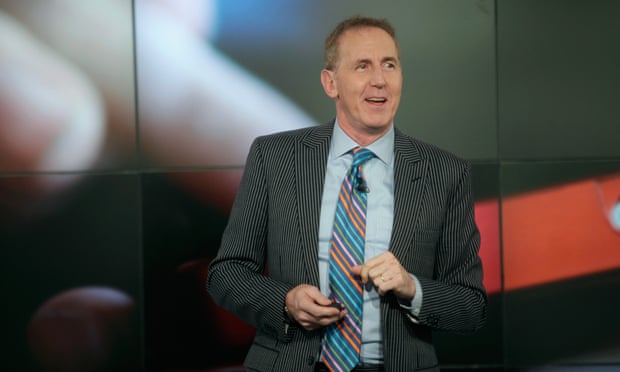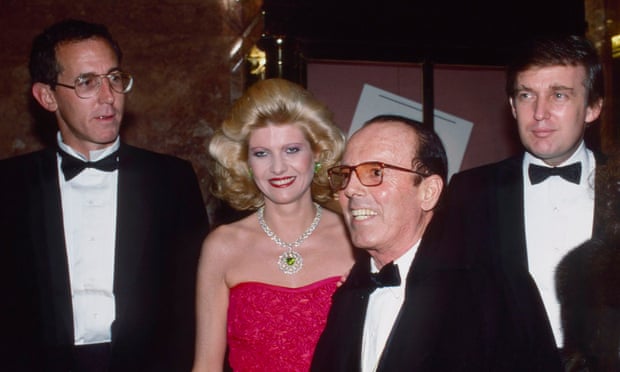A great overview of why the monster ended up being green (instead of yellow) in the films and why the stories are so different.
https://screenrant.com/frankenstein-monster-skin-color-change-movies-why/
Chimera? A fascinating article about the potential ethical and moral consequences of animals who are part human.
Article about the looming questions facing scientists as science nears the possibility of creating sentient creatures.
PDF of the novel in full:
https://library.oapen.org/bitstream/id/24cb1da5-a512-4de1-b24c-639b6452dbec/628778.pdf
The link above goes to a fantastic edition specifically made for university students who are studying the Sciences and Medicine. In other words, these students, the future holders of the powers of science, are being asked to consider the ideas of the book in terms of the power and the responsibility any scientific knowledge holds in the hands of the practitioner. What will be their impact on the world? What will they choose to do? Who will they choose to be?
Enjoy!
Frankenstein Quotes
“Nothing is so painful to the human mind as a great and sudden change.”
“Beware; for I am fearless, and therefore powerful.”
“Life, although it may only be an accumulation of anguish, is dear to me, and I will defend it.”“If I cannot inspire love, I will cause fear!”“I do know that for the sympathy of one living being, I would make peace with all. I have love in me the likes of which you can scarcely imagine and rage the likes of which you would not believe. If I cannot satisfy the one, I will indulge the other.”“How dangerous is the acquirement of knowledge and how much happier that man is who believes his native town to be the world, than he who aspires to be greater than his nature will allow.”“I ought to be thy Adam, but I am rather the fallen angel…”“There is something at work in my soul, which I do not understand.”“the companions of our childhood always possess a certain power over our minds which hardly any later friend can obtain.”“Even broken in spirit as he is, no one can feel more deeply than he does the beauties of nature. The starry sky, the sea, and every sight afforded by these wonderful regions, seems still to have the power of elevating his soul from earth. Such a man has a double existence: he may suffer misery, and be overwhelmed by disappointments; yet, when he has retired into himself, he will be like a celestial spirit that has a halo around him, within whose circle no grief or folly ventures.”“Satan has his companions, fellow-devils, to admire and encourage him; but I am solitary and detested.”“The world to me was a secret, which I desired to discover; to her it was a vacancy, which she sought to people with imaginations of her own.”“There is love in me the likes of which you’ve never seen. There is rage in me the likes of which should never escape. If I am not satisfied int he one, I will indulge the other.”“When falsehood can look so like the truth, who can assure themselves of certain happiness?”“How mutable are our feelings, and how strange is that clinging love we have of life even in the excess of misery!”“The whole series of my life appeared to me as a dream; I sometimes doubted if indeed it were all true, for it never presented itself to my mind with the force of reality.”“It may…be judged indecent in me to come forward on this occasion; but when I see a fellow-creature about to perish through the cowardice of her pretended friends, I wish to be allowed to speak, that I may say what I know of her character.”“With how many things are we on the brink of becoming acquainted, if cowardice or carelessness did not restrain our inquiries.”“If our impulses were confined to hunger, thirst, and desire, we might be nearly free; but now we are moved by every wind that blows and a chance word or scene that that word may convey to us.”“Man,” I cried, “how ignorant art thou in thy pride of wisdom!”“Listen to me, Frankenstein. You accuse me of murder; and yet you would, with a satisfied conscience, destroy your own creature. Oh, praise the eternal justice of man!”“Thus strangely are our souls constructed, and by slight ligaments are we bound to prosperity and ruin.”“The fallen angel becomes a malignant devil. Yet even that enemy of God and man had friends and associates in his desolation; I am alone.”“Hateful day when I received life!’ I exclaimed in agony. ‘Accursed creator! Why did you form a monster so hideous that even you turned from me in disgust? God, in pity, made man beautiful and alluring, after his own image; but my form is a filthy type of yours, more horrid even from the very resemlance. Satan had his companions, fellow-devils, to admire and encourage him; but I am solitary and abhorred.’ – Frankenstein”“I was benevolent and good; misery made me a fiend. Make me happy, and I shall again be virtuous.”“The world was to me a secret which I desired to devine.”“I am alone and miserable. Only someone as ugly as I am could love me.”“It is true, we shall be monsters, cut off from all the world; but on that account we shall be more attached to one another.”“Learn from me, if not by my precepts, at least by my example, how dangerous is the acquirement of knowledge, and how much happier that man is who believes his native town to be his world, than he who aspires to become greater than his nature will allow.”“Nothing is more painful to the human mind than, after the feelings have been worked up by a quick succession of events, the dead calmness of inaction and certainty which follows and deprives the soul both of hope and fear.”
MHS STUDENTS in my English 201 class, please choose one of the essay topics below. Write an essay of at least 500 words long. Use the PEEPEL structure to make sure you include all the bits and pieces you need.
Find appropriate quotes for your evidence in the pdf of the novel (see above).
INTRO
T – Title
A – Author
K – Keywords from the question
O – Outline main points
PARAGRAPHS x 3
P – Point that answers the question.
E – Evidence from the text that supports your point.
E – Explain how the quote answers the question
P – Purpose. What purpose did this example have for the audience?
E – Extension or Evaluate: Link to the text as a whole, link to society (Hint: You are part of society)
L – Link all your analysis back to the question.
CONCLUSION
T – Title
A – Author
K – Keywords from the question
S – Summarise your points
QUESTIONS (Choose ONE) Exam questions from 2019
1. Analyse how the experiences of a character were used to comment on society.
2. Analyse how language features created a positive and / or negative atmosphere.
3. Analyse how ideas of innocence and / or guilt were developed for a particular purpose.
4. Analyse how negative and / or positive relationships were used for a particular purpose.
5. Analyse how structure reinforced your understanding of one or more themes. “Structure” may refer to the order, organisation, or conventions of a text.
6. Analyse how different places were developed for a particular purpose.
7. Analyse how specific events reinforced your understanding of one or more ideas
Wider reading for the ideas in Frankenstein:
Valuable insights about the birth of the story along with in-depth analysis in honour of the 200 year anniversary of the book.
https://www.newyorker.com/magazine/2018/02/12/the-strange-and-twisted-life-of-frankenstein
http://www.huffingtonpost.com/entry/harry-reid-gop-obama_us_57ed1c78e4b082aad9b97321?8p7xlkro83erk9
Donald Trump’s ghostwriter on being the ‘Dr Frankenstein’ who made a monster
Tony Schwartz wrote The Art of the Deal, the book that created the Trump myth. As the race for the White House draws to a close, he is looking on in horror

Tony Schwartz’s former editor has a nickname for him. “He’s Dr Frankenstein,” was how Edward Kosner put it in the New Yorker.
In fairness, there have been many Dr Frankensteins behind the rise and rampage of Donald Trump. They’ve included the Republican party, with its years of divisiveness and racially charged rhetoric; the media, with its collective chase of the next shiny object; and the baby boomers feeling the cultural and economic ground give way.
But it was Schwartz who sparked this strange political creature into life. As the ghostwriter of Trump’s bestselling 1987 book The Art of the Deal, he did more than anyone to create the businessman’s public persona. In it he translated Trump’s coarse ramblings into charming straight talk and came up with the phrase “truthful hyperbole”, which captures brilliantly an approach to business and politics in which everything is the greatest, the most beautiful. Schwartz helped give Trump the sweet smell of success – now seemingly irresistible to millions of people clinging to the American dream.
“It’s been horrifying,” he says. “In the nearly 30 years after the book was published, the main thing I felt was, I want to be as far away from this man as I can, but I didn’t feel I created Frankenstein, because he was a real estate developer and reality television star. Who cared? It wasn’t that consequential to the world.”
But building on the foundation of The Art of the Deal, Trump spent a decade hosting the reality TV show The Apprentice, reinforcing his image as a preternatural businessman with the power to say “You’re fired!” (and blurring the boundaries between reality and reality television, just as he would throughout the presidential campaign). Many supporters say they trust him to run America like a company; the business of America is business. It was no coincidence that he launched his presidential campaign at Trump Tower, a marbled cathedral of capitalism in Manhattan.
Schwartz, 64, continues: “I simply didn’t think that much about it until he decided to run for president and it became clear that this wasn’t going to just fade away, that he was actually in a position to win the nomination. That’s when I thought, ‘Oh my God, I’ve contributed to creating the public image of the man who is sociopathic and people don’t realise it.’”
If he were writing The Art of the Deal today, he’d call it “The Sociopath” instead, Schwartz told the New Yorker in July, an interview that broke decades of silence on the matter. “I certainly felt a kind of moral imperative to step in and say what I knew about a man I considered to be so dangerous, and I am very relieved that I did.”
The Trump he observed was vulgar and vainglorious, a narcissistic liar with a short attention span, no appetite for reading books and an “extremely mixed” business record. A Trump presidency could, he warns, lead to martial law, the end of press freedom and the risk of nuclear war: “Staggeringly dangerous. Worse than I imagined when he began to run. Unthinkable. Horrifying. He’s way more out of control in the last couple of months than I’ve ever seen him. He doesn’t have any core beliefs beyond his own aggrandisement and power.”

Schwartz fell into writing the book almost by accident. A liberal journalist in Ronald Reagan’s America, he wrote a scathing magazine article on Trump, only to receive a note from the entrepreneur, ever greedy for attention, saying he liked it. When Schwartz went to interview him for Playboy, Trump said he wanted to write an autobiography, even though he was only 38. Schwartz suggested instead a book called The Art of the Deal. Trump agreed – and said he should write it.
With a high mortgage and a second child on the way, Schwartz needed the money. He struck his own deal: a joint byline, half of the $500,000 advance and half the royalties. It paid off in financial if not spiritual terms: The Art of the Deal sold more than a million copies and spent 13 weeks atop the New York Times bestseller list.
Even at the time, Schwartz felt he was selling out, but to say he feels regret alone would be too simple. “I’ve spent a long, long time thinking about why I did it,” he muses. “It wasn’t the only choice I made that I’m not proud of in my life. It’s a complicated question to say whether I would do it differently today and here’s why: if I knew everything I know about what would happen to Trump, of course I wouldn’t do it.
“But the complexity is that the experience of writing that book was so powerful, in a negative way, that it led me to change my life dramatically and move from a focus on being successful and earning more money to really exploring what a meaningful life looks like.”
Schwartz quit journalism and set up a consulting firm, The Energy Project, which aims to boost employees’ productivity with happier, healthier workplaces. “I’ve spent 30 years doing stuff I’m proud of, that I’m not sure I would have gotten to if I hadn’t written that book. It gave me such a profound experience of the wrongness the direction of my life was taking. So it’s complicated, right?
“One does good things and bad things over the course of a life and, if you get to the age I am and feel good about the life you’ve lived, it’s hard to say, ‘Gee, I wish I’d done this differently or that differently.’ Maybe I wouldn’t have landed where I did.”
Schwartz delivered an address to the Oxford Union in the UK last Friday with the title “Into the belly of the beast: how Donald Trump led me on the path to dharma [enlightenment]”. He says: “What are the consequences of the choices you make that you rationalise to yourself, but can little imagine potentially huge consequences?”
It remains to be seen who else will find a moment of zen after election day on 8 November. Probably not the Republicans, facing bitter infighting after Trump’s hostile takeover. It will also be a time for the media to look at itself closely. Last December, the Republican candidate Jeb Bush told press reporters: “He’s playing you guys like a fiddle … by saying outrageous things and garnering attention.”
In February, Les Moonves, chairman of TV network CBS, declared: “It may not be good for America, but it’s damn good for CBS.” By March Trump was already estimated to have earned $2bn of media attention. There will be hard questions over the thousands of hours of airtime he has been given – and whether his bigotry should have been called out sooner, rather than normalised and mainstreamed.
While TV has often been in thrall to Trump, newspapers have shown their mettle with a series of investigations and exposures. The New York Times obtained records showing the billionaire may not have paid tax for 18 years. Then the Washington Post revealed a 2005 video in which Trump bragged about groping women (something Schwartz says he did not witness in 18 months shadowing him). This opened the floodgates for a dozen women to come forward with allegations of sexual assault or unwanted advances.
Schwartz reflects: “I think my journey has a parallel in the journey of the media over the past six to 12 months. Along comes something that seems pretty damn seductive, a guy who attracts huge ratings and you know that people are going to read your story if you write about him.
After this most astounding of all elections, nothing will be quite the same again, he believes. “It’s going to change the media because there’s no way not to go through a period of self-examination. It’s true for the media, for politics, for the culture of this country and for the whole issue of polarisation. Assuming it ends without Trump being elected, we have to use this as an opportunity to question a lot of assumptions that vast numbers of people had accepted and he has proved are not true.”
If Trump does lose the election, as opinion polls strongly suggest, there will tremendous relief for Schwartz. “This is an inflection point and if he’s as soundly rejected as it looks like he will be, it’ll be quite a contrast, for example, to Brexit. It will suggest the forces of progress and evolution hurled away the forces of hatred and fear.”
But how would Trump, whose entire personal mythology is based on winning with swagger, react to the devastating loss? Schwartz knows it won’t be pretty. “You can tell he’s terrified and angry about it and bewildered by it. It’s hard to predict exactly how he’s going to respond. It won’t be in a healthy way.
“There’s a chance he’s going to do everything he can to blame this on someone other than himself. To insist it’s a rigged election and to try to mobilise the angry people who are his base to do something violent and crazy, which he can then blame on the next administration. I’m very concerned.”
